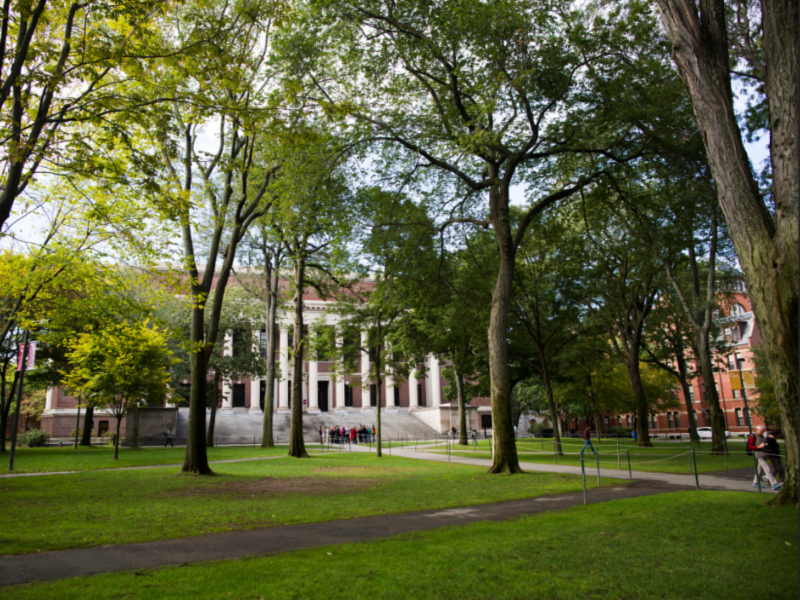Diana Marszalek 04 Dec 2023 // 11:00AM GMT

Eight weeks after Hamas attacked Israel, US universities continue to grapple with the discord the ensuing war has sparked on campuses, raising a myriad of weighty issues around topics like free speech — and the institutions’ role in managing them.
Last week, the US Department of Education opened an investigation into Harvard’s handling of alleged antisemitism on campus, adding the immensely influential university to a list of schools already being probed including Cornell and Columbia universities, the University of Pennsylvania and Cooper Union.
More than 150 University of California professors signed a letter opposing president Michael Drake's proposal for "viewpoint-neutral" Middle East history classes.
Students are gearing up to fight schools in court, claiming they are the victims of civil rights violations. Florida officials face two lawsuits related to the university system disbanding a pro-Palestinian group. Three Jewish NYU students are suing the university for allegedly not enforcing its anti-discrimination policies.
All of which speaks to the enormously difficult spot higher education has been in since the Oct. 7 attacks unleashed fierce discord on college campuses, which continues as the war persists and humanitarian crisis in Gaza worsens.
Unlike other recent world events that have mobilized campuses (most notably George Floyd’s murder and Russia’s invasion of Ukraine), the Israel-Hamas war has failed to galvanize academics to take stands on the issue, largely because the high stakes, complexity and passion on both sides of the issue make taking a position a dangerous prospect.
“Even nations who have experts and state departments and foreign ministries are sort of caught a little off guard about what to do next,” a source said. “Why should a small liberal arts colleges know better?”
Public responses have run the gamut from the heads of Northwestern, Stanford and Williams pledging their neutrality to University of Florida president Ben Sasse writing a pointed pro-Israel letter to Jewish students while criticizing his counterparts’ silence on the initial Hamas attack. “It’s easy to condemn evil as evil,” he said.
Communicators who specialize in higher education (all of whom requested anonymity) said the heat academics are feeling on this one is real, stemming from immense internal and external pressures and that, as history already shows, making missteps could jeopardize their schools' reputational and financial wellbeing.
University of Pennsylvania Liz Magill, for instance, has been under fire, leading her to launch an action plan to fight antisemitism in response to a donor backlash (and calls for her resignation) that started before the Gaza war but was inflamed by the school’s silence on the Hamas attacks. The Wexner Foundation, started by Victoria’s Secret billionaire Leslie Wexner, ended its decades-long relationship with Harvard over its “dismal failure” to condemn Hamas’ terror attack. University of California regent Jay Sures blasted a UC faculty group for condemning the system’s use of the word “terrorism” to describe the Hamas attack.
“You have to condemn antisemitism. It has to be done. It’s completely appropriate to mourn the loss of life in Gaza,” a source said. “You have to think carefully about doing anything beyond that.”
Yet communicators said that universities — more than any other organizations or institutions — should be leading public discourse on the Middle East, given that encouraging critical thinking, academic freedom, fostering debate and creating a safe environment for diverse views and populations are core to their missions.
The fact that two months into the Gaza war students are still being subjected to hate, be it antisemitism or Islamophobia, and living in fear shows a dearth of leadership in academia — and the failure of institutions to set a tone that allows for freedom of expression but only with respect and tolerance of others, they said.
At the same time, however, communicators say the “dizzying” array of internal and external pressures on higher ed leaders leaders (representing comms, legal, development, top administration and more) makes taking a leadership role on this issue a nearly untenable goal for universities, given stakeholders competing interests — and the reputational and financial risks that come with being anything other than completely impartial.
University leaders, they said, should be focusing their efforts and communications on internal audiences and “listen, listen, listen” to what they want as means of meeting their expectations in ways that align with schools’ core values.
“A college it is supposed to be a place where people with a lot of different ideas who are developing into adulthood and civic engagement learn how to do it and do so respectfully,” a PR consultant said. “What you are seeing is not intolerance but the process of learning.”



































.jpg)


















